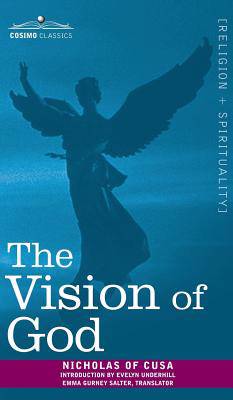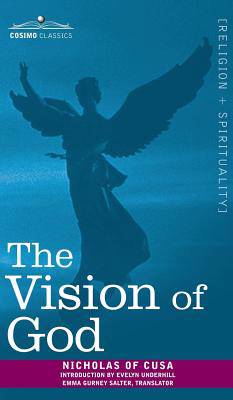
Door een staking bij bpost kan je online bestelling op dit moment iets langer onderweg zijn dan voorzien. Dringend iets nodig? Onze winkels ontvangen jou met open armen!
- Afhalen na 1 uur in een winkel met voorraad
- Gratis thuislevering in België vanaf € 30
- Ruim aanbod met 7 miljoen producten
Door een staking bij bpost kan je online bestelling op dit moment iets langer onderweg zijn dan voorzien. Dringend iets nodig? Onze winkels ontvangen jou met open armen!
- Afhalen na 1 uur in een winkel met voorraad
- Gratis thuislevering in België vanaf € 30
- Ruim aanbod met 7 miljoen producten
Zoeken
Omschrijving
Known for his deeply mystical writings about Christianity, Nicholas of Cusa wrote this, his most popular work, against a backdrop of widespread Church corruption. God, he believed, is found in all things, and thus cannot be perceived by man's senses and intellect alone. The path to ultimate knowledge, then, begins in recognizing our own ignorance. Deeply influenced by Saint Augustine, Nicholas mixes the metaphysical with the personal to create a deeply felt work, first published in 1453, designed to restore faith in even the most jaded. A German cardinal of the Roman Catholic Church, NICHOLAS OF CUSA (1401-1464) was a philosopher, jurist, mathematician, and astronomer. Also referred to as Nicolaus Cusanus and Nicholas of Kues, he is considered one of the great geniuses and polymaths of the 15th century. Among his other works are Writings on Church and Reform, Catholic Concordance, and Of Learned Ignorance.
Specificaties
Betrokkenen
- Auteur(s):
- Uitgeverij:
Inhoud
- Aantal bladzijden:
- 164
- Taal:
- Engels
Eigenschappen
- Productcode (EAN):
- 9781944529666
- Verschijningsdatum:
- 15/04/2007
- Uitvoering:
- Hardcover
- Formaat:
- Genaaid
- Afmetingen:
- 127 mm x 203 mm
- Gewicht:
- 303 g

Alleen bij Standaard Boekhandel
+ 59 punten op je klantenkaart van Standaard Boekhandel
Beoordelingen
We publiceren alleen reviews die voldoen aan de voorwaarden voor reviews. Bekijk onze voorwaarden voor reviews.











